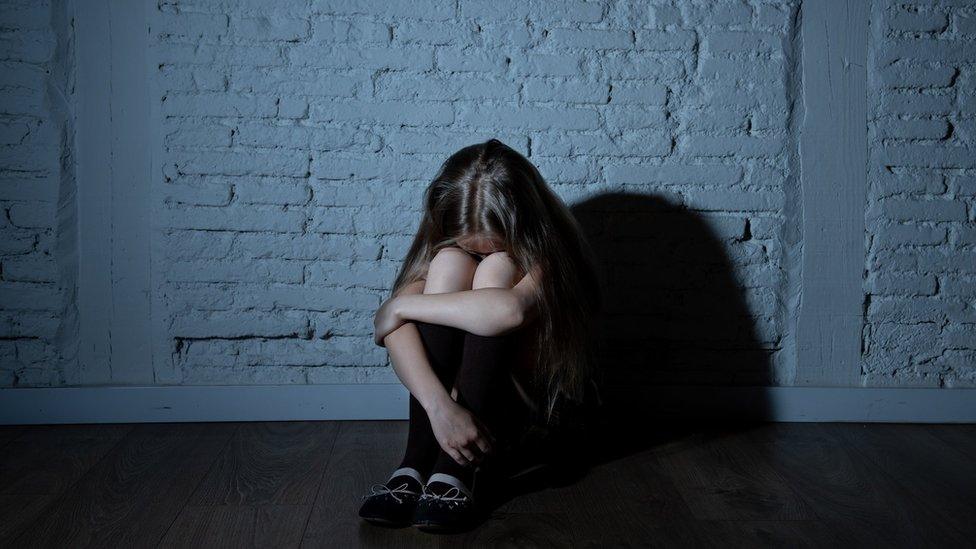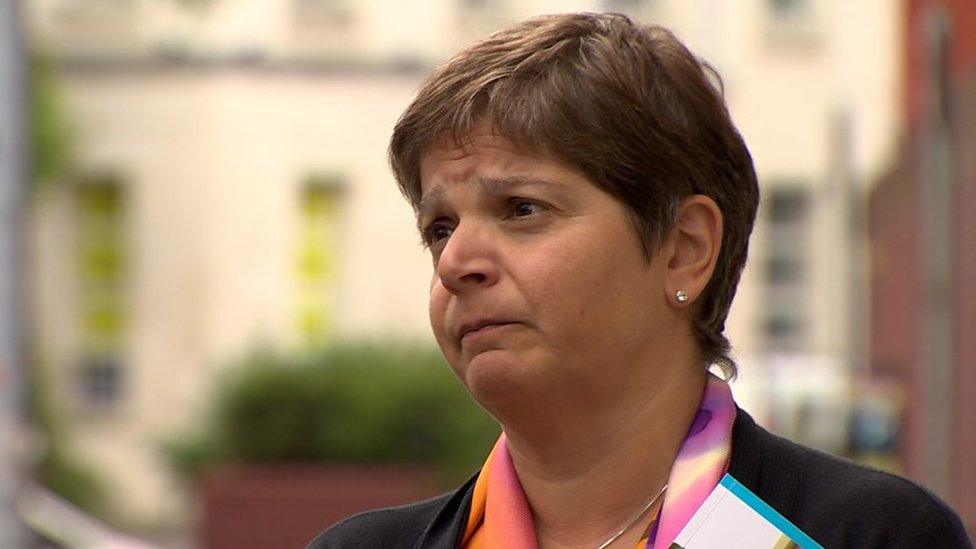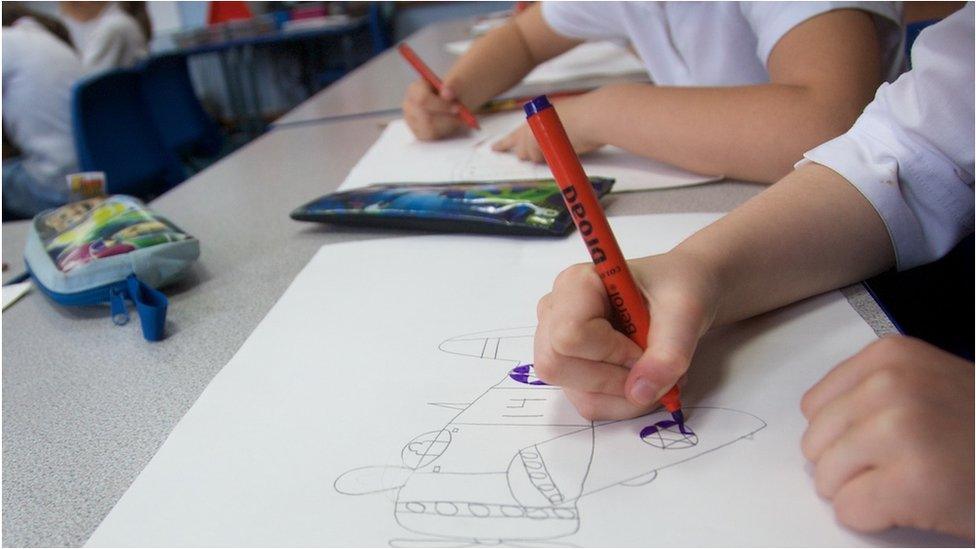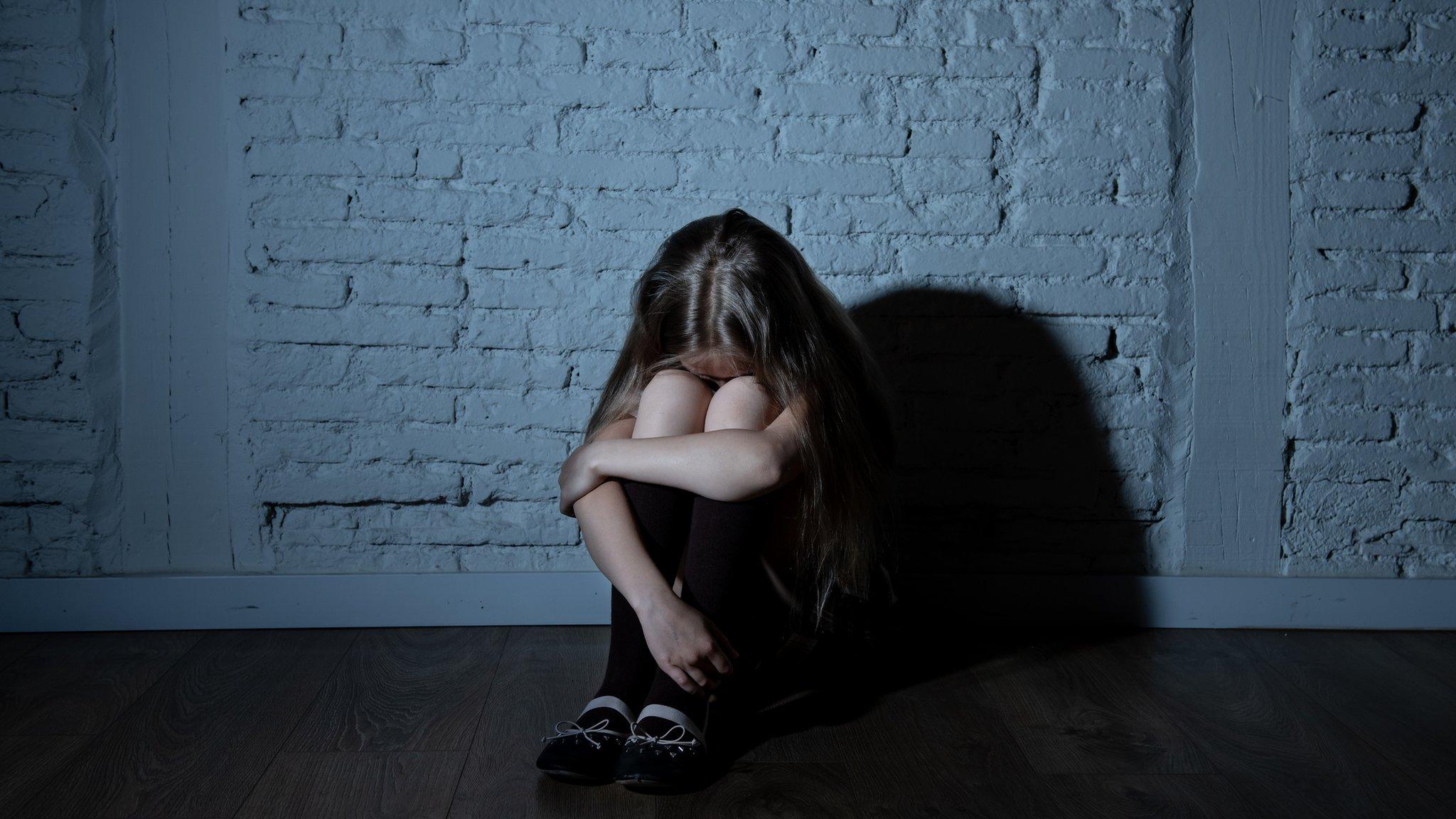Call for ban on placing NI pupils in isolation
- Published

Northern Ireland's schools are not legally obliged to record when they restrain or isolate a pupil
New laws are needed to ban putting children in isolation or in so-called seclusion rooms in schools, according to NI's children's commissioner.
In a new report, Koulla Yiasouma said that restraining a child "should only be used as a last resort".
The Neither Seen Nor Heard report also calls for laws to make it mandatory for schools to record and report uses of restraint.
There is no legal obligation on schools to record when they restrain a pupil.
That is despite guidance issued by the Department of Education (DE) which has said parents should be told if their child is restrained in school.
But some school principals in the commissioner's report said that guidance was "ambiguous, open to interpretation and difficult to enforce".
Some parents have been campaigning for Harry's Law, which would make it compulsory for schools to report when they had restrained or isolated a child to parents and the Education Authority (EA).
The celebrity and businesswoman Paris Hilton has previously backed their campaign to toughen the law.

In February, Paris Hilton tweeted her support for the campaign led by parents in Northern Ireland
The children's commissioner's report examines the use of restraint and seclusion in schools in Northern Ireland.
It defines seclusion as "the placing and keeping of a person (alone) in a room or other space from which they are unable to leave".
Restraint of children in schools could be mechanical - using a device or equipment - or physical.
But the report said that as there was no "systematic, regional reporting and monitoring" there was no way of knowing the scale of the use of seclusion and restraint in schools here.
Its findings and recommendations are based on survey responses from more than 230 school principals, 39 interviews with parents and carers and nine interviews with other professionals who work with children.
In her foreword, Ms Yiasouma said the report revealed some "heart-breaking experiences".
"Too often when restraint and seclusion is used, it is about discipline and control and an attempt to address perceived 'behavioural problems' rather than recognising the environmental, social and emotional needs of the pupils," she said.

Koulla Yiasouma's report makes 15 recommendations
She also said the impact on children and families could be "devastating" and lead to poor mental health, children becoming withdrawn, eating disorders and self-harm.
A number of parents and carers told her that their children who had additional needs had been restrained in school without them being told.
"You know there is something massively wrong with the system, when you have to give permission about applying sun cream, but they can restrain your child, drag them up the corridor, kicking and screaming and their mental health deteriorating over time," said one parent quoted in the report.
'Harrowing and upsetting'
Another parent said their child had been taken and locked in a room for not sitting down in class.
"I later found out the room was an old storeroom with no windows," they said.
Other parents said that restraint and seclusion could be "harrowing and upsetting ... with long-lasting trauma for the whole family".
They also said that some schools focused on "bad behaviour" and control rather than a child's distressed behaviour and emotional needs.
Parents also reported that complaining to schools' board of governors about incidents of restraint or seclusion was "often stressful, lengthy, and had limited outcomes".
But school principals said that there was a need for more training and support for staff on "how to minimise the risk of using restrictive practices".
"We cannot create a situation whereby staff are afraid to intervene and restrain or physically stop a child who may be about to come to harm," one principal said.
The Neither Seen Nor Heard report concluded there was "clear evidence of the need for urgent changes in policy, guidance, and legislation on restraint and seclusion".
It made 15 recommendations.
Those include new laws to ban seclusion in schools, as well as the use of any techniques which inflict pain on children and clarity that restraint can only be used as a last resort.
The use of restraint or force should only be "permitted to protect that child or others from immediate and serious harm," the report continued.
It also recommended that the Education Authority (EA) should conduct a detailed yearly review on instances of restraint and seclusion in schools.
It said there was a need for all school staff, including student teachers, to receive more training in range of related areas.
Related topics
- Published24 June 2021

- Published11 May 2021

- Published11 June 2019
